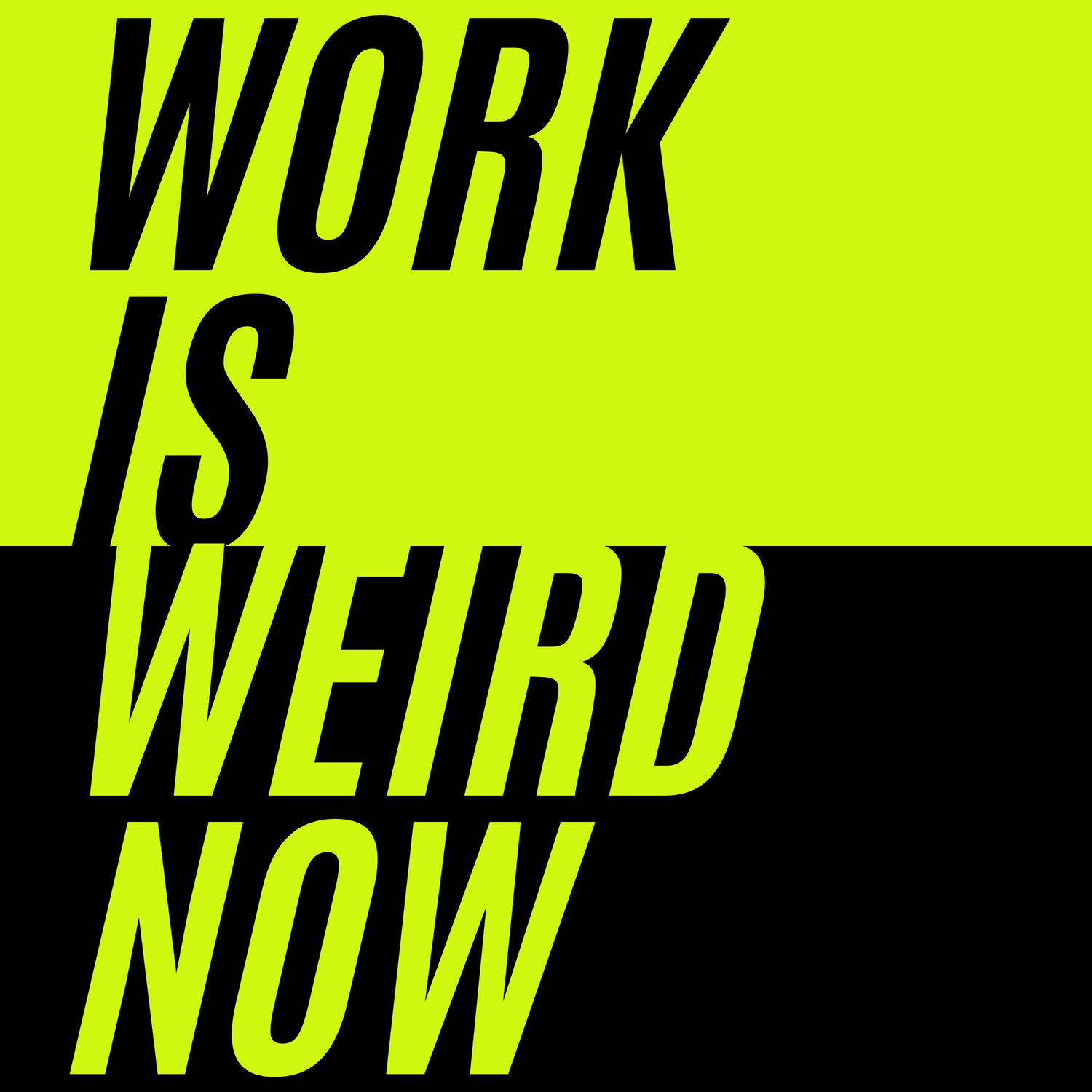is curiosity today’s work superpower?
What happens when you hit your career peak before you’re 30? What if the stuff that used to work in your job just… doesn’t anymore? What if you're the one in the room always asking questions – and getting side-eyed for it?
In our latest Work Is Weird Now episode, we sat down with Emma Davies and Ruta Sudmantaite – co-hosts of the excellent Blame It On Marketing podcast – to unpack why curiosity might just be the most underrated advantage at work today.
Together, Emma and Ruta have 12 seasons of podcasting, careers as fractional CMOs, and deep experience navigating uncertainty, growth, burnout, and reinvention in marketing – a field they argue is made for the curious.
Here’s what we learned.
Curiosity Isn’t a Nice-to-Have. It’s a Survival Skill
Marketing is famously fast-moving. Algorithms change. Campaigns flop. What worked six months ago now feels prehistoric. For Ruta, curiosity isn’t just about self-improvement – it’s about not spiraling when performance dips.
“Curiosity can be a really good cure for basically not being super negative,” she said. “You’ve got to go and figure it out – not assume you’re bad at your job.”
Emma agrees – if she’s not interested in something, that’s her signal it’s time to move on. Curiosity has been her constant across every job shift and identity change in her career.
Curiosity Comes With Risk (and That’s OK)
Curiosity doesn’t always feel comfortable. In fact, it often comes at a cost – challenging authority, questioning the strategy, pointing out when something’s not working. That can be hard, especially in rooms where marketers are already fighting for respect.
“You can be seen as negative or even threatening,” said Ruta, “when you say ‘hey, I actually don’t think this business model adds up.’ But I want it to work. That’s why I’m asking the question.”
Is AI Killing Curiosity? Or Fueling It?
We asked Emma and Ruta what they thought about tools like ChatGPT. Their take? Total enabler – as long as you use it intentionally.
“In a country like the UK that massively underinvests in learning and development,” said Emma, “these tools are your teammate. You can literally ask it to write you a syllabus.”
Curiosity today isn’t just about asking questions. It’s about knowing where to ask them.
So How Do You Build a More Curious Work Culture?
It starts with giving people space. Time to explore. Permission to not have all the answers. And structure that supports it.
Ruta suggests introducing cross-functional OKRs (shared goals between teams), which force collaboration and surface new perspectives – even if someone isn’t naturally curious.
Emma adds: if your business doesn't have clear goals that tie back to things like customer or employee experience, curiosity won’t take root. People won’t know what they're supposed to be curious about.
Final Takeaways
We loved this conversation because it didn’t just romanticise curiosity. It acknowledged the emotional labour of being the one who keeps poking at the status quo. And it reminded us that being curious isn’t about being nosy or disruptive – it’s about being open, honest, and invested in making things better.
“You don’t get curiosity and doing new stuff for free,” said Ruta. “You’re going to mess up. But you’ve got to be okay with that. And keep rolling.”
Curiosity won’t make your job easier. But it will make it richer. More resilient. And probably, more fun.
🎧 Listen to the full episode on Spotify, Apple Podcasts, or wherever you get your audio.
📣 Follow Emma and Ruta at Blame It On Marketing
👀 And follow us on LinkedIn for more conversations about how work is weird now – and what we’re doing about it.
